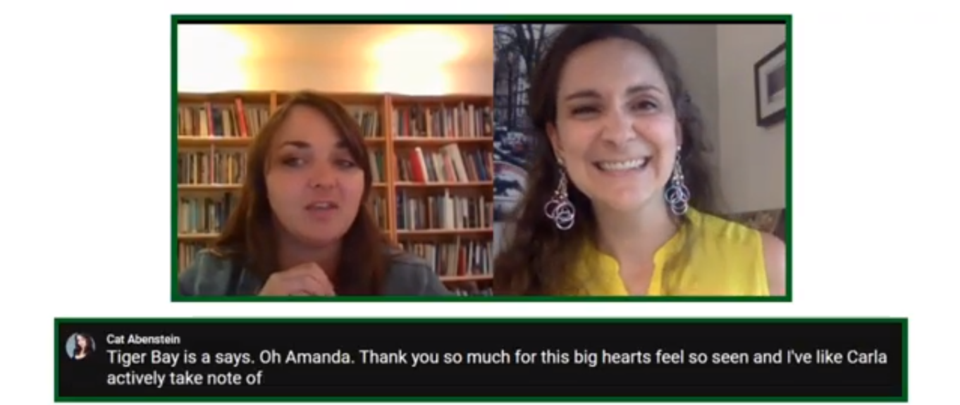In a fascinating workshop presented by the Festival of Words and the Saskatchewan Writers Guild, author Amanda Leduc presented a perfectly delivered discussion on how to include the experience of disability in writing in a respectful and authentic way.
As a non-fiction author whose book dissects the ableism present in the most familiar fairy tales, and as a person with cerebral palsy, Leduc was the perfect voice to share some knowledge on how to approach writing the lived experience of disability without falling into any of the common ableist tropes.
Leduc spoke briefly about how sometimes works give characters a disability as a plot device, either for the purpose of moving a story forward or eliciting a certain reaction from readers, like sympathy or fear.
“People are not all saintly like Tiny Tim [in A Christmas Carol], and we’re not all villains like the villains in James Bond that almost always have facial scarring,” said Leduc. “When you use disability in this way, you shift the attention away from what it means to actually have a disability in the world.”
Another issue that often crops up, said Leduc, is the use of ableist language, including phrases like “tone-deaf” or “blind to,” which paints the disabled experience as something that is unsavoury or unwanted.
She encouraged writers to take careful consideration of the words they use, especially when writing either about a disabled character or from a disabled perspective.
“It really is good to think about whether the language that you use could be construed as being offensive in some way, and if there are more accurate or specific turns of phrase you could use,” said Leduc. “There’s nothing wrong with disability, there’s nothing wrong with moving through the world in a different way and the stories that we tell should show this.”
Leduc also shared the ultimate question that writers need to ask when considering including disability in their work: ‘is this my story to tell or is this a story better told by someone with this lived experience?’
It was the first question on her checklist of tips to consider when including disability in one’s writing, and one of the most important points she made during the presentation.
Another key point on Leduc’s checklist was considering employing the services of a sensitivity writer to help shape the portrayal of disability in a manuscript.
“When you’re writing from the perspective of someone else, you need to do your due diligence and make sure that your representation is thoughtful and inclusive, but also be prepared that some people might not agree with it,” said Leduc. “And that’s okay because you can use that as an experience to grow and learn and be better as a writer.”
During the question and answer period of the workshop, the topic of writing disability in the genre of fantasy was raised, eliciting a well-laid out response from Leduc.
“Disability and fantasy is interesting because the assumption is almost always that in fantasy, there’s magic, that can make disabilities disappear,” said Leduc. “[But] there’s a really ironic lack of imagination in the imaginative world [specifically of Disney] when it comes to thinking about how to fit disability in the fantasy space.”
“I think in terms of having disability language in fantasy and magical worlds, really what you want is magic that forces the world to change, [rather than the person],” she continued. “There are these kinds of tropes that often happen in fantasy, where because somebody looks different they’re sort of cast out of society, so I think the aim really is to include the disabled person in the conversation, the narrative, in a way that makes the world more inclusive.”
Leduc’s overall message was not one dissuading authors from including disability in their work, but rather one encouraging authors to think deeply about the portrayal of disabilities and the message it sends to readers.
“If we don't look at the challenges disabled people have, either in a story or in real life, then we don’t think about how we as a society can overcome these challenges,” said Leduc.
“I want your characters to be special in the best kind of way and not in the sort of condescending kind of way. Make it part of who they are and make them proud of who they are, because disabled people deserve to see disability pride everywhere they look.”
The Festival of Words continues until July 19, with a full schedule of events available here.
Stay tuned for coverage of the Festival as it progresses through the coming week.




